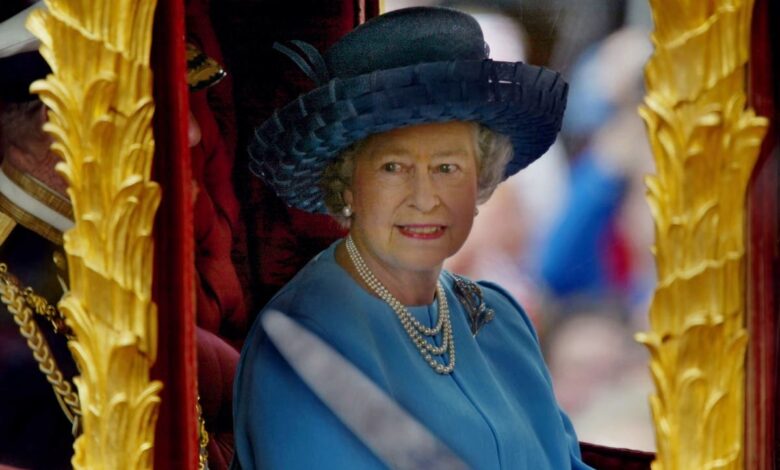This was the Queen’s greatest attribute

I checked Twitter on my phone right before I opened my laptop to start writing this, and saw that the word “disgusting” was trending. You can probably guess why. I’m writing this article a few hours after the announcement that Queen Elizabeth II passed away in her Balmoral residency, and it feels like every major social media site from Reddit and Twitter to 4chan is competing to play host to the 2022 hot take Olympics.
I’m not going to speak on issues of taste when it comes to making joke about a famous person’s death. The Queen was the monarch of the United Kingdom, and saying that British people shouldn’t make borderline jokes about inappropriate subjects feels like it goes against the national character. Likewise, complaining about people’s need to provide commentary on a figure as divisive as the Queen feels like yelling at the tide for going in and out. I’m sure a lot of that commentary is “disgusting” but hey: welcome to the internet. You’re going to hate it here.
What’s funny about this constant back-and-forth of take and counter-take around the Queen’s death — which I imagine is still going on as you’re reading this, and will probably continue for the next few days at least — is that it’s so contrary to the way that she conducted herself in the public domain. There’s so much emotion in the air today as people talk about the Queen as if they knew her personally, but the reality is that very few did. For somebody who spent so much time in the public eye, she had a remarkable ability to ensure that her inner life remained largely unseen.
I’m not sure I’m equipped to comment on whether that’s a good thing or not. As public figures, from prime ministers to presidents, seem to have more and more trouble keeping the genie in the bottle, there’s something endearing about that old-fashioned compulsion to keep oneself to oneself.
The past few years especially have created a political and social ecosystem where people put more and more of themselves out there for the world to see, often for the worse. It’s given rise to an intense culture war, in which everything from gender identity to language and medicine is open to be attacked and defended on all fronts by people who aren’t really equipped to do either. People we used to respect as academics, or rebels, or writers, or even just decent people, have proven themselves time and time again to be less than we given them credit for, as they can’t help but bare their souls to the world, warts and all.
It was a lot easier to enjoy Harry Potter before JK Rowling became suspiciously vocal on the subject of gender, and I would have preferred not knowing that Meat Loaf’s views on Covid may have contributed to his death. Joe Rogan’s podcast may as well be renamed Don’t Meet Your Heroes, as a lot of people seem to go on it with what feels like the expressed desire to destroy any lingering threads of their credibility. I suppose it’s better to know these things than not, but it’s easy to long for the days before we were so aware of people’s tendency to be, well, people.
On the other hand, maybe that kind of candidness is something we could benefit from when it comes to a monarch. The Queen was so beloved largely because she always felt like she transcended those kinds of things, but she was still human. There’s something unsettling about not knowing exactly what she thought about those bigger issues, when she occupied such a pivotal role in British life.
So much of the criticism directed at her online today isn’t really to do with Elizabeth Alexandra Mary Windsor, the human being. When people make tasteless jokes about her passing, they aren’t really talking about her as a person. They’re talking about her as a symbol of England, of the United Kingdom, of the monarchy as a concept, or of the legacy of British colonialism as a whole. That’s all they really can talk about, because the rest is a bit of an enigma.
To keep up to speed with all the latest opinions and comment, sign up to our free weekly Voices Dispatches newsletter by clicking here
That’s probably why there’s so much anxiety around her death from those that saw her as a British institution. Some of us need those reliable figures who feel like they’re above it all. As our political and cultural leaders become more and more fallible, there’s something comforting in the idea that a woman could live in the public eye for 96 years and somehow avoid exposing themselves as petty, or cruel, or stupid. That isn’t to say that she was any of those things, but the point is we’ll never really be able to say for sure.
It’ll be interesting to see in the coming years whether King Charles (that still sounds weird to me) manages to conduct himself in a similar way. It’s unlikely; his personal life has already been dissected by tabloids, and he’s generally less guarded when he speaks in public. He probably won’t be going on any Twitter rants about how Star Trek is too “woke”, but he’s already more fundamentally open to being dragged into the nation’s never-ending culture wars. Again, maybe that isn’t the worst thing in the world. But it’s definitely going to be an adjustment in terms of how we view the reigning monarch.
The Queen’s passing marks an ending, not only to her time on the throne, but of a very particular type of leader. She’s been a mainstay of UK life since before most of us were born, and whether you agreed with her role or not, it’s going to be strange not having her around anymore. Queen Elizabeth II may have been the last of a breed that they just don’t make anymore. Like it or not, it’s a step forward; time will tell us into what.




